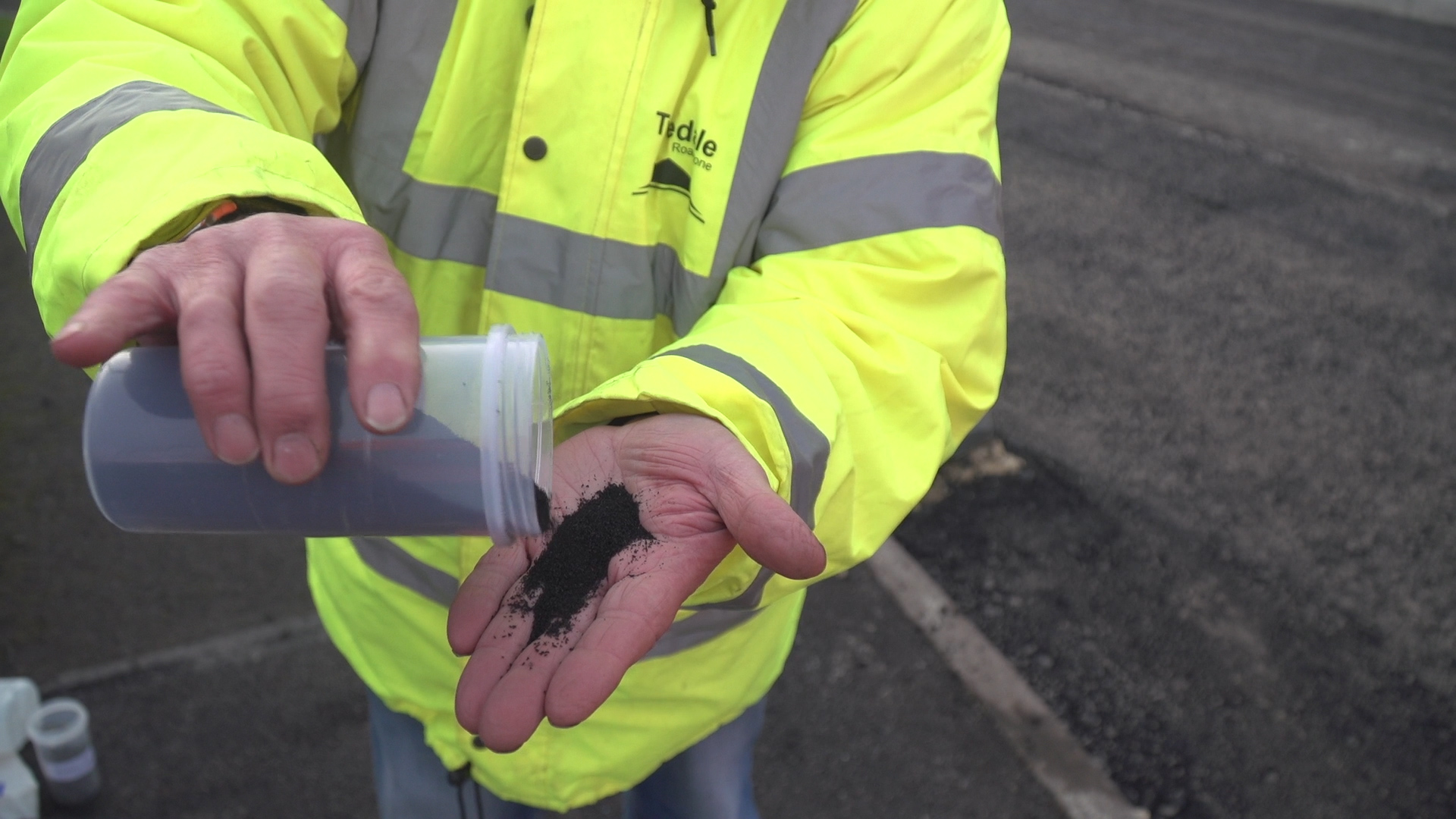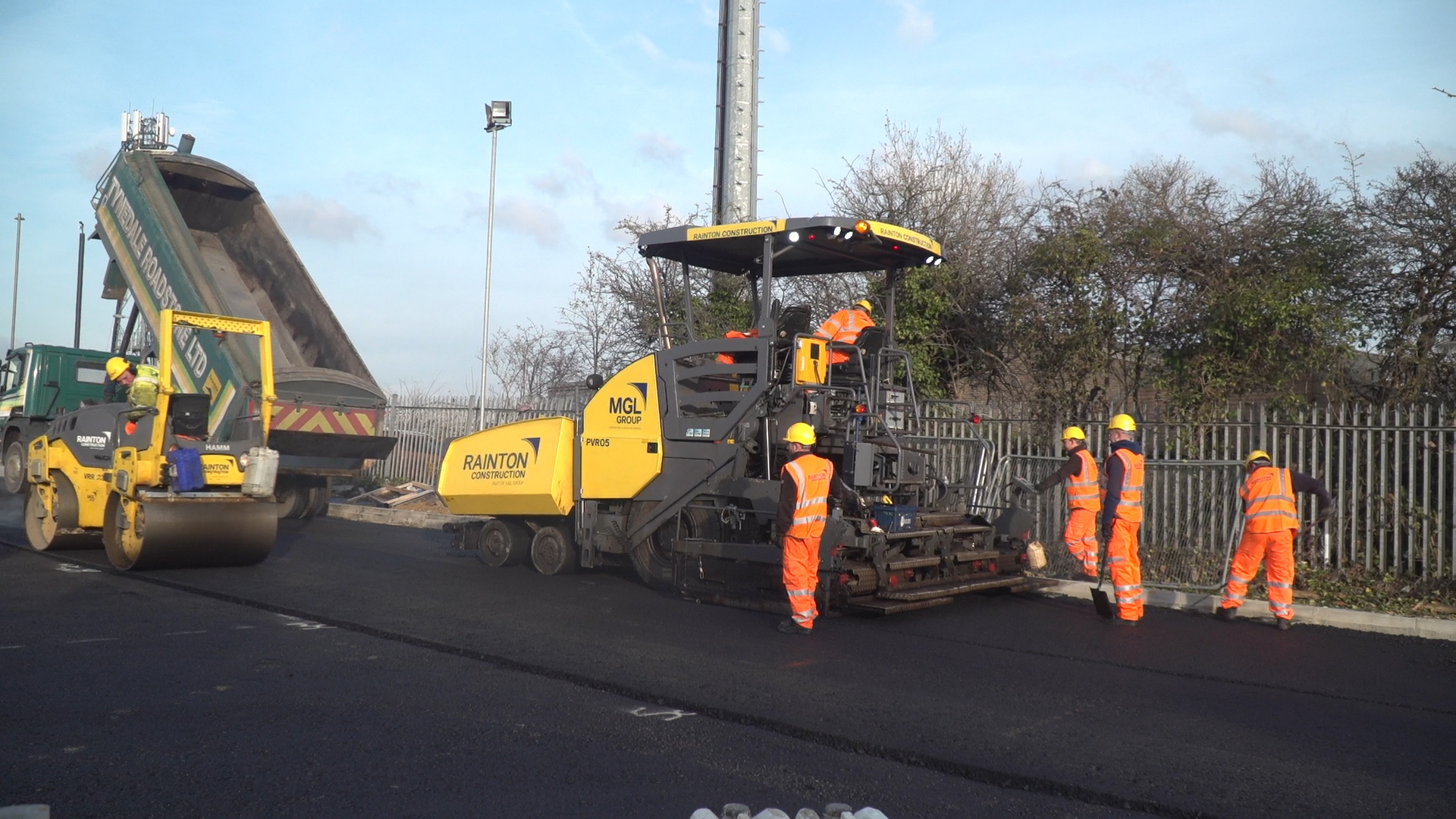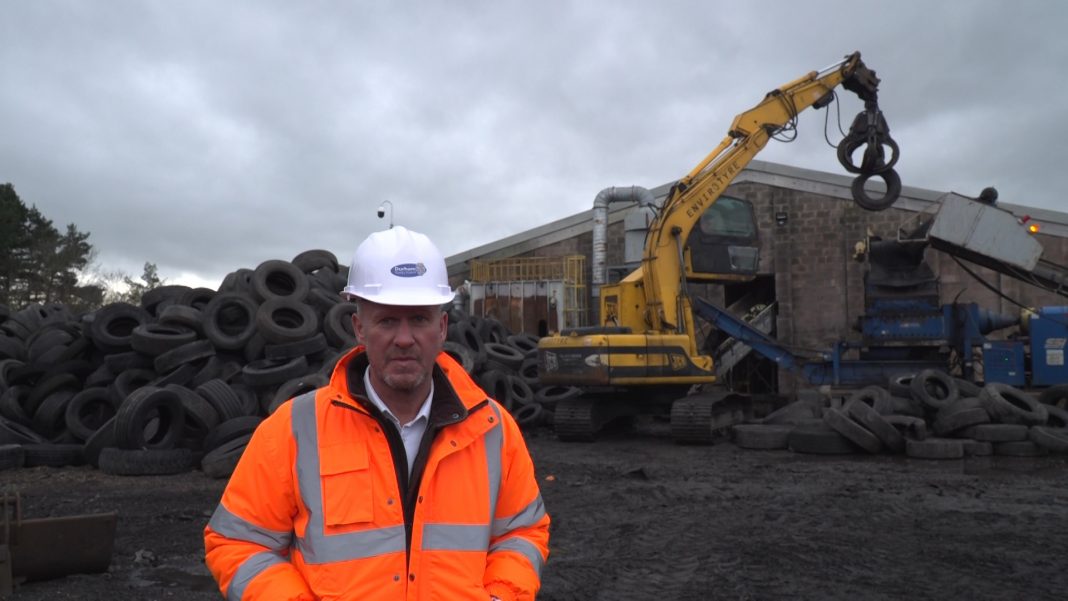Some people are disappointed that it’s 2020, and we don’t have flying cars. Well, get used to it, there’s still plenty of life in good old asphalt thanks to a new technique that adds wee cribbely morsels of top-notch horrible old recycled tyre rubber crumbs, blended with gourmet manky old plastic dust, to the mix.

The Council is in league with the champion road surfacing contractor, Rainton Construction, and over the past year, they’ve bunged this recycled rubber-plastic waste into everything from roads to motorways. Over approximately 21 km of road, they effectively recycled the equivalent of 50 million plastic carrier bags, which is about as many as I have under my kitchen sink.
The handy rubber nuggets are a waste byproduct of the tyre recycling process, and were previously thrown away. For extra points, the recycled tyres in question were cleaned up from around the county.
And this isn’t just about saving all that landfill or incinerator space on old tyres and shopping bags: this overcooked little rubber nut and powdered plastic mix makes the road more water-resistant, which reduces the erosion caused by water in cracks freezing & thawing, which is a common way that potholes get started. It makes the asphalt less brittle and thus less likely to crack in the first place, and makes it more resilient in very hot weather. It is expected to last longer than traditional materials.
Mark Readman revealed: “The use of recycled tyre crumb is not a new innovation but mixing recycled plastics and the waste tyre crumb is, and we believe these are the first trials in the UK to use both waste plastic and waste rubber.
From now on, a typical single truck load of surfacing material will include the equivalent of approximately 1,064 plastic bags and 51 car tyres.
Over the coming months, we will continue to work closely with Rainton Construction to develop new initiatives and look to find different ways to incorporate waste products to improve the surfacing mix.”


Dave Elliott unfolded: “It is great for us as a business to have a partner like Durham County Council who is as passionate as we are about the re-use of end of life wastes, which are sourced locally and would normally be disposed of. We have already developed a range of asphalt materials through our group company Tynedale Roadstone, utilising plastic waste and are now blending the same with rubber crumb waste which has added benefits to the materials.
“We have and will continue to invest in the development of these products in order to maximise our findings and obtain the best values both economically and environmentally., To this end we have installed test and development equipment at our Barton Laboratories and this is giving Tynedale Roadstone an advanced understanding of these waste products.
“Going forward we will continue to look at new ideas and resources to maximise waste streams within the county boundaries of Durham.”


























